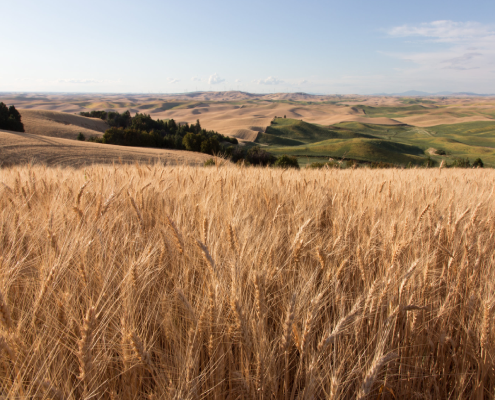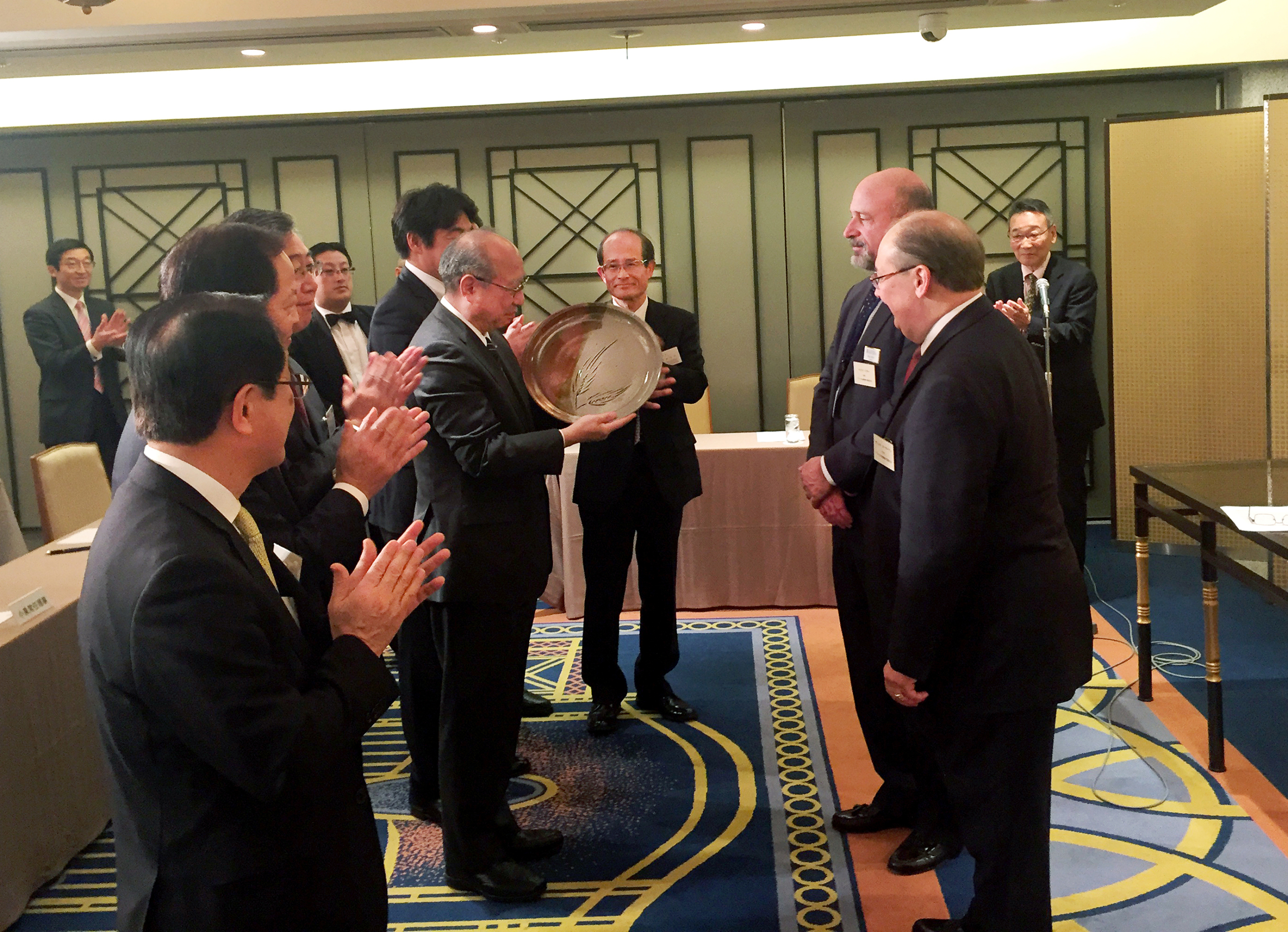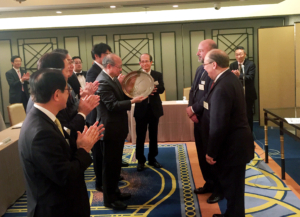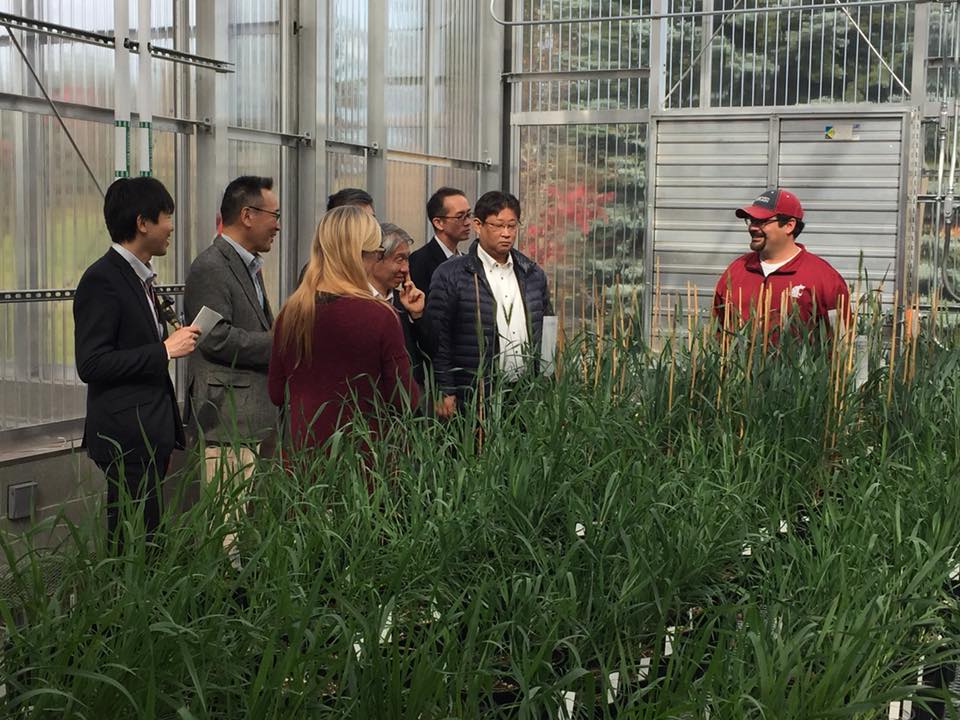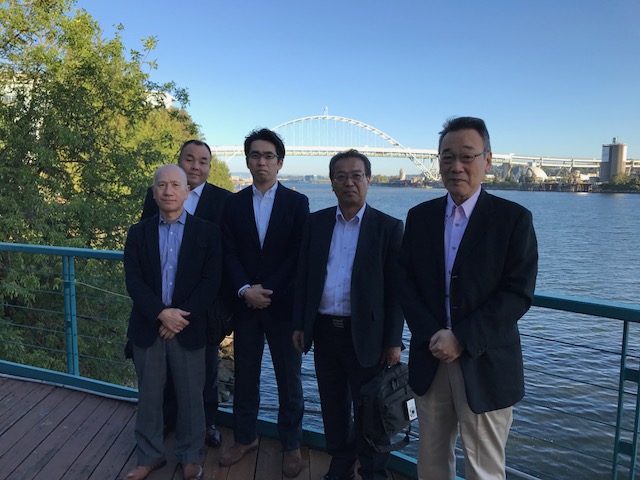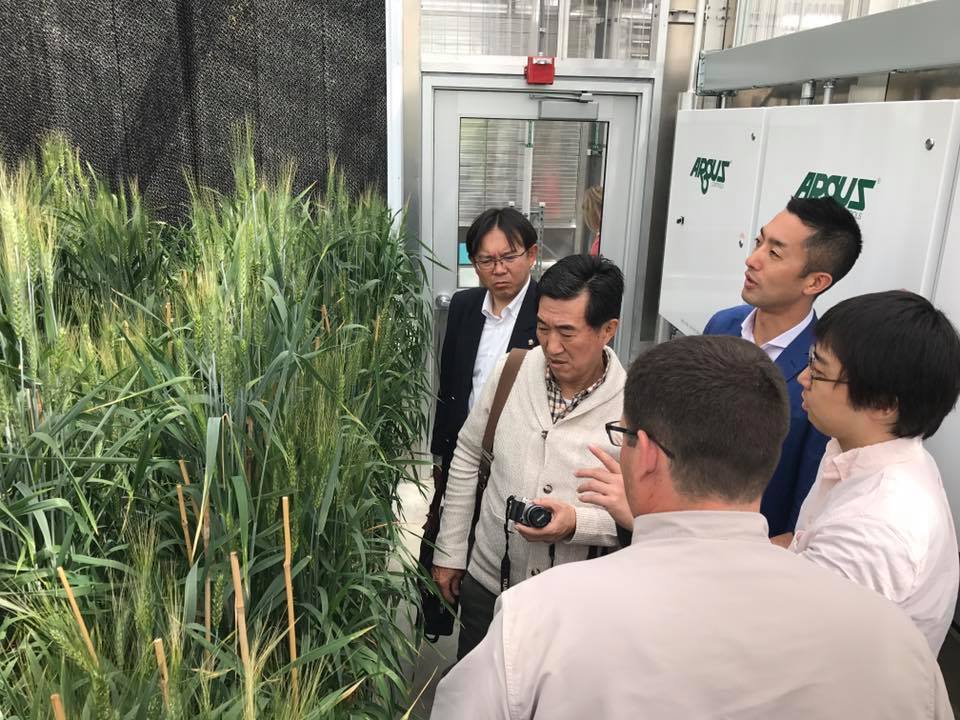ARLINGTON, Virginia — U.S. Wheat Associates (USW), the National Association of Wheat Growers (NAWG) and 33 state wheat organizations have expressed hope in a letter to U.S. Trade Representative (USTR) Robert Lighthizer that the Administration will immediately prioritize accession to TPP to save the valuable Japanese market for U.S. wheat farmers.
“Once TPP is ratified, U.S. wheat exports to Japan will be at serious risk,” the letter stated. “TPP will reduce the effective tariffs that Japanese flour millers pay for imported Australian and Canadian wheat over nine years from about $150 to about $85 per ton. Effective tariffs on imported U.S. wheat would remain at about $150 per ton. Loss in market share and its negative effect on farmgate prices are likely to come much sooner, as Japanese millers reformulate their product mix to avoid the need to purchase artificially expensive U.S. wheat. Lost market share is incredibly difficult to regain.”
The wheat industry organizations noted that Japan has, on average, imported more U.S. wheat than any other country for many years. U.S. wheat market share is typically more than 50 percent of the 6 million metric tons (MMT) of wheat Japan imports annually. Sources within the Japanese milling industry however estimate that could quickly fall to less than 25 percent under TPP 11 rules. At the average price Japan has been paying for U.S. wheat the past five years, that would represent an annual loss of almost $500 million for farmers, rail and barge operators and grain handlers.
“Unfortunately, the agreement among the TPP members will have a devastating impact in rural communities across the wheat belts of the Great Plains and the Northwest, though it will hurt the income of every American farmer growing wheat,” the letter continued. “The President has promised to negotiate great new deals. American agriculture now counts on that promise and American wheat farmers – facing a calamity they would be hard pressed to overcome – now depend on it.”
The organizations said they welcomed the President’s recent openness to joining TPP if better terms for the United States can be negotiated. They also suggested that Ambassador Lighthizer could include acceding to the TPP as an objective in the Administration’s report to Congress that will outline its request to extend Trade Promotion Authority.
# # #
About U.S. Wheat Associates
USW’s mission is to “develop, maintain, and expand international markets to enhance wheat’s profitability for U.S. wheat producers and its value for their customers.” USW activities in more than 100 countries are made possible through producer checkoff dollars managed by 17 state wheat commissions and cost-share funding provided by USDA’s Foreign Agricultural Service. For more information, visit our website at www.uswheat.org.
About NAWG
NAWG is the primary representative in Washington D.C. for wheat growers, working to ensure a better future for America’s growers, the industry and the general public. NAWG works with a team of 20 state wheat grower organizations to benefit the wheat industry at state and national levels. From their offices in the Wheat Growers Building on Capitol Hill, NAWG’s staff members are in constant contact with state association representatives, NAWG grower leaders, Members of Congress, Congressional staff members and the public.
Nondiscrimination and Alternate Means of Communications
U.S. Wheat Associates prohibits discrimination in all its programs and activities on the basis of race, color, religion, national origin, gender, marital or family status, age, disability, political beliefs or sexual orientation. Persons with disabilities who require alternative means for communication of program information (Braille, large print, audiotape, etc.) should contact U.S. Wheat Associates at 202-463-0999 (TDD/TTY – 800-877-8339, or from outside the U.S. – 605-331-4923). To file a complaint of discrimination, write to Vice President of Finance, U.S. Wheat Associates, 3103 10th Street, North, Arlington, VA 22201, or call 202-463-0999. U.S. Wheat Associates is an equal opportunity provider and employer.
Letter:
The Honorable Robert E. Lighthizer
Ambassador
United States Trade Representative
600 17th Street, NW
Washington, DC 20508
March 7, 2018
Dear Ambassador Lighthizer,
As you prepare the Administration’s report to Congress accompanying the request for extension of Trade Promotion Authority (TPA), the undersigned organizations strongly urge including the objective of acceding to the Trans-Pacific Partnership (TPP) before the extension of TPA expires on July 1, 2021.
As representatives of more than 140,000 American wheat farmers, we welcomed President Trump’s recent comments suggesting openness to joining the TPP. Unfortunately, that has become an urgent need as the eleven members of TPP plan to sign the agreement on March 8th in Chile. We hope that the Administration will immediately prioritize accession to TPP in order to save the valuable Japanese market for U.S. wheat farmers.
Once TPP is ratified, U.S. wheat exports to Japan will be at serious risk. Australia and Canada – both TPP members – are major competitors to U.S. farmers in wheat and other agricultural products. TPP will improve their access to several markets, resulting in an erosion of U.S. market share, particularly in Japan, and a major hit on farm income at home.
TPP will reduce the effective tariffs that Japanese flour millers pay for imported Australian and Canadian wheat over nine years from about $150 to about $85 per ton. Effective tariffs on imported U.S. wheat would remain at about $150 per ton. Loss in market share and its negative effect on farmgate prices are likely to come much sooner, as Japanese millers reformulate their product mix to avoid the need to purchase artificially expensive U.S. wheat. Lost market share is incredibly difficult to regain.
In many ways, the Japanese market has been the backbone of the U.S. wheat industry for decades because of its consistent demand for high quality wheat. That is now at serious risk. Japan imports around 3 million metric tons (MMT) of U.S. wheat per year, with an average value of over $800 million. Sources inside the Japanese milling industry tell us this $65 per ton disadvantage will force them to cut U.S. wheat to about 1.35 MMT, a loss of approximately $500 million per year.
Unfortunately, the agreement among the TPP members will have a devastating impact in rural communities across the wheat belts of the Great Plains and the Northwest, though it will hurt the income of every American farmer growing wheat. The President has promised to negotiate great new deals. American agriculture now counts on that promise and American wheat farmers – facing a calamity they would be hard pressed to overcome – now depend on it.
Like President Trump, American farmers do not enjoy losing to their competitors. They want to make great deals and see their family businesses thrive. If the President brings us into TPP, U.S. farmers can start winning again among the world’s most important agricultural markets. The undersigned organizations strongly urge you to put forward the objective of U.S. membership in TPP to prevent this market loss and put the farmers we represent on a strong foundation for the future.
Sincerely,
National Association of Wheat Growers
U.S. Wheat Associates
Arizona Grain Research & Promotion Council
California Association of Wheat Growers
California Wheat Commission
Colorado Association of Wheat Growers
Colorado Wheat Administrative Committee
Idaho Grain Producers Association
Idaho Wheat Commission
Kansas Association of Wheat Growers
Kansas Wheat Commission
Kentucky Small Grain Growers’ Association
Maryland Grain Producers Association
Maryland Grain Producers Utilization Board
Minnesota Association of Wheat Growers
Minnesota Wheat Research & Promotion Council
Montana Grain Growers Association
Montana Wheat & Barley Committee
Nebraska Wheat Board
Nebraska Wheat Growers Association
North Carolina Small Grain Growers Association
North Dakota Grain Growers Association
North Dakota Wheat Commission
Ohio Corn & Wheat Growers Association
Oklahoma Wheat Commission
Oklahoma Wheat Growers Association
Oregon Wheat Commission
Oregon Wheat Growers League
South Dakota Wheat Inc.
Texas Wheat Producers Association
Texas Wheat Producers Board
Washington Association of Wheat Growers
Washington Grain Commission
Wyoming Wheat Growers Association
Wyoming Wheat Marketing Commission
cc:
The Honorable Sonny Perdue, Secretary, U.S. Department of Agriculture
The Honorable Wilbur Ross, Secretary, U.S. Department of Commerce
The Honorable Pat Roberts, Chairman, Senate Agriculture, Nutrition & Forestry Committee
The Honorable Debbie Stabenow, Ranking Member, Senate Agriculture, Nutrition & Forestry Committee
The Honorable Orrin Hatch, Chairman, Senate Finance Committee
The Honorable Ron Wyden, Ranking Member, Senate Finance Committee
The Honorable Michael Conaway, Chairman, House Agriculture Committee
The Honorable Collin C. Peterson, Ranking Member, House Agriculture Committee
The Honorable Kevin Brady, Chairman, House Ways & Means Committee
The Honorable Richard Neal, Ranking Member, House Ways & Means Committee

